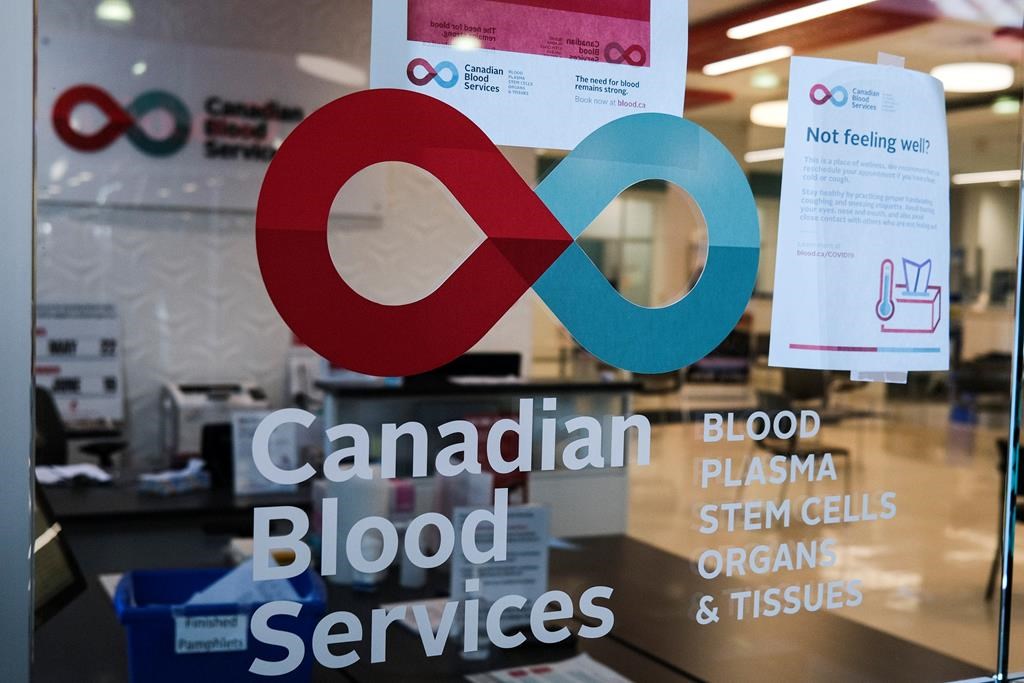When the coronavirus pandemic brought much of the country to a standstill, Canadian Blood Services quickly found itself losing out on valuable donations.

Many were worried that donating blood could put them at risk of contracting COVID-19 and opted out of planned appointments.
But just a few weeks later, the organization is reporting that appointments are on the rise and cancellations are much fewer and farther between.
“The inventory is strong right now,” said Peter MacDonald, the director of donor relations for Atlantic Canada. “We’ve had a generous response.”
MacDonald attributes the recent return to business as usual on the donation side to calls from the chief public health officer and prime minister, dispelling rumours and helping to ease donors’ fears.
And in light of those concerns, Canadian Blood Services made changes to ensure better safety for any who enter their facilities.

“We removed chairs from waiting areas, we removed some chairs from the refreshment area and our beds are more spaced out to respect physical distancing,” MacDonald said.
“We already have a very robust cleaning and infection control protocol,” he added. “We’re maintaining that same protocol but we’re doing it more often.”
Canadian Blood Services donations come in one of three varieties: whole blood, platelets and plasma.
Each has its own shelf life, with plasma, which can be frozen, on the longer end of the spectrum.
That, in turn, has pushed the organization to cancel plasma donations in Halifax for the month of April to maximize its ability to collect the other two components.
“Plasma we can freeze for up to a year for transfusion,” MacDonald explained. “Red cells last for 42 days and platelets only last for seven days so we’ve temporarily suspended the plasma program.”

Additionally, the organization has enacted measures such as cancelling mobile units to communities that require staff to remain overnight, such as a planned blood drive in Edmundston, N.B., scheduled for next week.
Still, even with the recent success MacDonald says has been seen nationwide, Canadian Blood Services is focused on ensuring the supply continues to be strengthened.
“This isn’t a sprint, it’s a marathon.
“It’s our responsibility to collect what’s needed and there are definitely pieces of health care that will continue on,” MacDonald said. “Cancer treatment, accident victims, people with bleeding disorders or compromised immune systems that rely on blood and blood products every single day.
“Those folks will need our support and the support of donors,” he said. “We’re here to collect what’s needed for people.”
Donors are encouraged to call ahead to set up an appointment as walk-in donations have been cancelled for the time being to control the number of people inside their locations at a given time.
- Canadian man dies during Texas Ironman event. His widow wants answers as to why
- Invasive strep: ‘Don’t wait’ to seek care, N.S. woman warns on long road to recovery
- ‘Super lice’ are becoming more resistant to chemical shampoos. What to use instead
- Canadians more likely to eat food past best-before date. What are the risks?
Anyone who would like to donate is asked to call 1-888-2-DONATE.
Questions about COVID-19? Here are some things you need to know:
Health officials caution against all international travel. Returning travellers are legally obligated to self-isolate for 14 days, beginning March 26, in case they develop symptoms and to prevent spreading the virus to others. Some provinces and territories have also implemented additional recommendations or enforcement measures to ensure those returning to the area self-isolate.
Symptoms can include fever, cough and difficulty breathing — very similar to a cold or flu. Some people can develop a more severe illness. People most at risk of this include older adults and people with severe chronic medical conditions like heart, lung or kidney disease. If you develop symptoms, contact public health authorities.
To prevent the virus from spreading, experts recommend frequent handwashing and coughing into your sleeve. They also recommend minimizing contact with others, staying home as much as possible and maintaining a distance of two metres from other people if you go out.
For full COVID-19 coverage from Global News, click here.




Comments